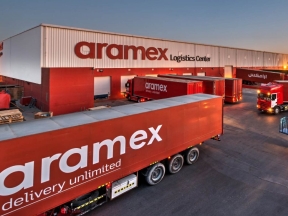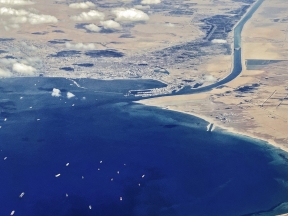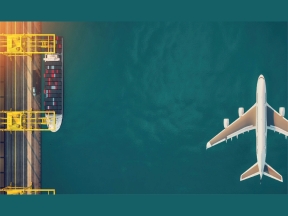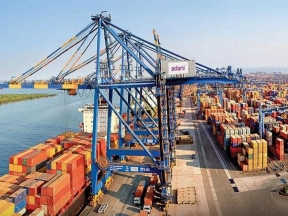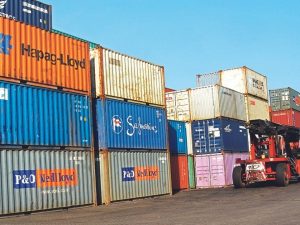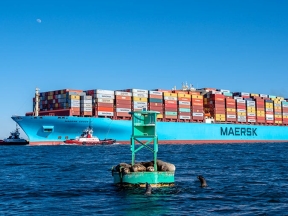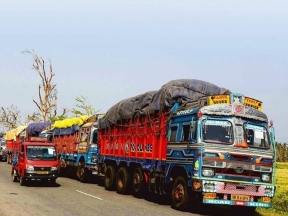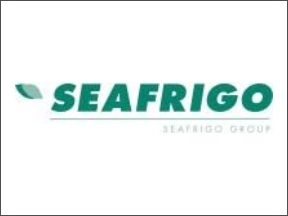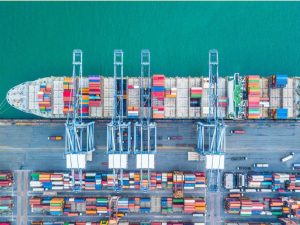In its transition to a new operating model, Aramex has announced its plans of splitting its business in two: Aramex Express will cater to e-commerce and B2C; while Aramex Logistics will become the freight forwarding B2B arm. The company believes that this reshuffle will “enhance customer service levels and operating efficiencies, while capturing greater global market share”. Aramex Express, which includes international and domestic delivery, will serve the B2C customer base, including Shop & Ship, e-commerce, FMCG, SMEs and other customers needing “innovative last-mile solutions”. The company has been a strong player in e-commerce deliveries across the Middle East, with a marked presence in Saudi Arabia and the UAE. Aramex Logistics, which includes air freight, sea freight, land freight and warehousing and distribution, will serve the B2B customer base across multiple industries including oil & gas, healthcare & pharmaceutical, aerospace and retail & fashion.
Read More »Yet another Suez Canal blockage, but no global traffic jam in sight
The Suez Canal Authority had to put up with with another ship running aground in the high-traffic waterway. The Coral Crystal, which measures 225 metres in length and 32 metres in width, was passing through the canal with 401 tonnes of cargo when it ran aground. However, the good news is that there was no global shipping traffic jam. Although it is yet to be ascertained why the bulk carrier ran aground, it has been reported that it was only stuck for short time. According to some international reports, the carrier only took 15 minutes. Fortunately, it was stuck in a double-lane section of the canal, so other vessels could keep going on their way in another lane. Earlier this year, the Ever Given blockage led to a global traffic jam. The 440-metre-long Ever Given was wedged in the canal for six days, creating a massive traffic jam and leading to international shipping delays as vessels were forced to go around Africa instead of passing through the canal.
Read More »GEODIS offers sustainable fuels for air and sea transport
GEODIS is offering its customers to benefit from alternative fuel solutions in the air and at sea, all around the world. The objective is to contribute to the reduction of the CO2 emissions of their shipments. “The development of biofuel is one of the strategic paths being pursued by GEODIS to meet the challenge of carbon neutrality. With these new solutions for air and sea freight, we offer our customers an additional way to decarbonize their entire supply chain,” says Marie-Christine Lombard, GEODIS Chief Executive Officer. The aviation (Sustainable Aviation Fuel) and maritime (Sustainable Marine Fuel) fuels, derived from non-fossil sources, are produced using food and agricultural waste (mainly cooking oil). Their use allows for a massive reduction in CO2 emissions over the cycle from production to fuel consumption; at least 80 percent for air and 90 percent for sea transport, along with a reduction in other pollutants.
Read More »Commerce Ministry assures to resolve container shortage
A ray of hope for Indian exporters is expected in the current week as the Commerce Ministry in India has assured that they will announce short-term measures to ease the situation of acute container shortage and skyrocketing box prices caused by the Covid-19 pandemic. India’s Commerce Secretary BVR Subrahmanyam stated to the media that the Central government is brainstorming the options put across by the export body and private players to come up with a solution for the ongoing container crunch. Federation of Indian Exporters Organisation’s (FIEO) Director General and CEO Dr. Ajay Sahai said, “There are around 30,000 odd containers which are at different ports either because the importer has not taken the delivery or there is some dispute on customs duty or classification. We have suggested the government that these 30,000 containers be offloaded at various warehouses and can add them to the supply chain to help in exports.” Secondly, the export body has requested the government to regulate the export of empty boxes so that only filled containers move out of the country and the empties are put back in the system.
Read More »DP World to partner in Ghazipur ICD
The inland container depot (ICD) project in Gazipur’s Dhirashram area is finally going to be implemented under the public-private partnership (PPP) model as the government is considering making Dubai-based terminal operator DP World a partner in the venture. Officials of the Public Private Partnership Authority Bangladesh said DP World has already agreed to work on the project. Now, discussion is going on to fix the terms and conditions of the final agreement. Dr Najmus Sayadat, director (investment promotion) of PPP Authority, said, “We are preparing a document for DP World, which may take six months. The investment of DP World will be finalised based on the document.” The ICD will be built on a 160-acre site near Dhirashram Railway Station in Joydevpur, Gazipur. According to Bangladesh Railway, the cost of the project could be up to $300 million. Once it is complete, the Kamalapur ICD will be relocated to Dhirashram. This is expected to help container transport by rail go up by as high as 30%.
Read More »Ocean carriers raise Oceania prices
The two largest container lines in the world, Maersk and MSC, have announced new rates to Australia and New Zealand destinations, which are expected to take effect in the next months. Firstly the Danish carrier will apply a rate increase of US$200 / 20′ ft equipment and US$400 / 40′ ft equipment from the United States and Canada to Australia and New Zealand with an effective date of 1 October. Earlier, on 11 September the 2M Alliance’s partner of Maersk, MSC will apply the following updated prices from the ports of Antwerp and La Spezia to Sydney, Brisbane, Auckland and Bluff.
Read More »India’s logistics market to grow at a CAGR of 10.5%
India’s logistics market is expected to grow at a CAGR of 10.5% until 2025 spurred by faster adoption of modern technology, e-enabled fleet, and warehouse management solutions. Had it not been for the disruption caused by the coronavirus pandemic, the logistics and supply chain industry — the backbone of global trade and services — would not have moved in a hurry to engineer the adoption of IoT, machine learning, and artificial intelligence in their day-to-day operations. “The disruptions caused by Covid-19 are making global companies rethink their supply chain strategy. Two major areas that are likely to see great traction are improved visibility across supply chains (both for cargo shipments and documentation) and drawing a balance between just-in-time and just-in-case,” says Sanjay Bhatia, Co-founder & CEO at Freightwalla, a digital freight forwarder.
Read More »APSEZ gets approval from AP Govt to acquire 10.4% stake in Gangavaram Port
Adani Ports and Special Economic Zone (APSEZ), announced that the Andhra Pradesh Maritime Board has approved the company’s proposal to acquire 10.4% stake for INR 644.78 crore in Gangavaram Port. The transaction for the same is expected to be completed within a month. Gangavaram Port is engaged in the business of handling various types of dry bulk and break bulk cargo. The port is a multi-cargo facility and handled 32.81 MMT of cargo in FY 21. It had a capacity of 64 MMT. The operational revenue for financial year 2020-21 was Rs 1,057 crore. Earlier in April, the Competition Commission of India (CCI) also gave a go-ahead to the Adani Ports and Special Economic Zone Ltd. on their acquisition of 89.6% stake in Gangavaram Port Ltd. The acquisition of the port by Adani is in line with its strategy of East Coast to West Coast parity and will provide an access to growth from new hinterland markets as it has coverage in resource rich and industrial belt in Eastern, Central and Southern India.
Read More »Seafrigo launches joint venture with Antwerp Cold stores
Seafrigo’s recently-launched joint venture with Antwerp Cold Stores, combined with its new LCL (Less-than-Container) reefer service between the Belgian city and New York in the USA, is proving so popular with customers that the logistics provider is now looking to further expand its operations and capacity in the port. Antwerp is set to play an important role in the further development of the Seafrigo Group, which is headquartered at Le Havre in France. Demand in the USA for high quality Belgian products such as chocolate and biscuits has surged over the last 12 months and in order to support the further development of the trade lane the Seafrigo Group is now looking at taking on an additional warehouse in the Port of Antwerp with at least 25,000 pallet positions for temperature-controlled cargo. As a result of the joint venture, which became effective in April this year, Seafrigo and Antwerp Cold Stores are already the leading player in Belgium for temperature-controlled perishable goods handling and storage. An expansion of the port facility will further enhance their combined market position.
Read More »Port congestion hits carriers’ schedules
Alliance networks operating between Asia and North Europe are experiencing delays of up to a month due to worsening port congestion at both ends of the tradelane. Asia-North Europe loops with a pro-forma round-trip transit time of around 75 days are now taking 100 or more, with carriers obliged to juggle schedules at the last minute. According to a Maersk advisory, vessel wait times at Antwerp are already up to 10 days, with lesser – albeit significant – delays impacting all North European hub ports. The consultant said the ULCV’s revised European rotation of Rotterdam, Zeebrugge and Felixstowe would now take 18 days, due to waiting times in both Rotterdam and Felixstowe, compared with its schedule of around six days. According to eeSea data, the AE55/Griffin loop has a pro-forma round-trip voyage time of 76 days, of which 62, or 81%, are spent at sea, with 14 days allocated to time at port.
Read More » Cargo Breaking News
Cargo Breaking News
